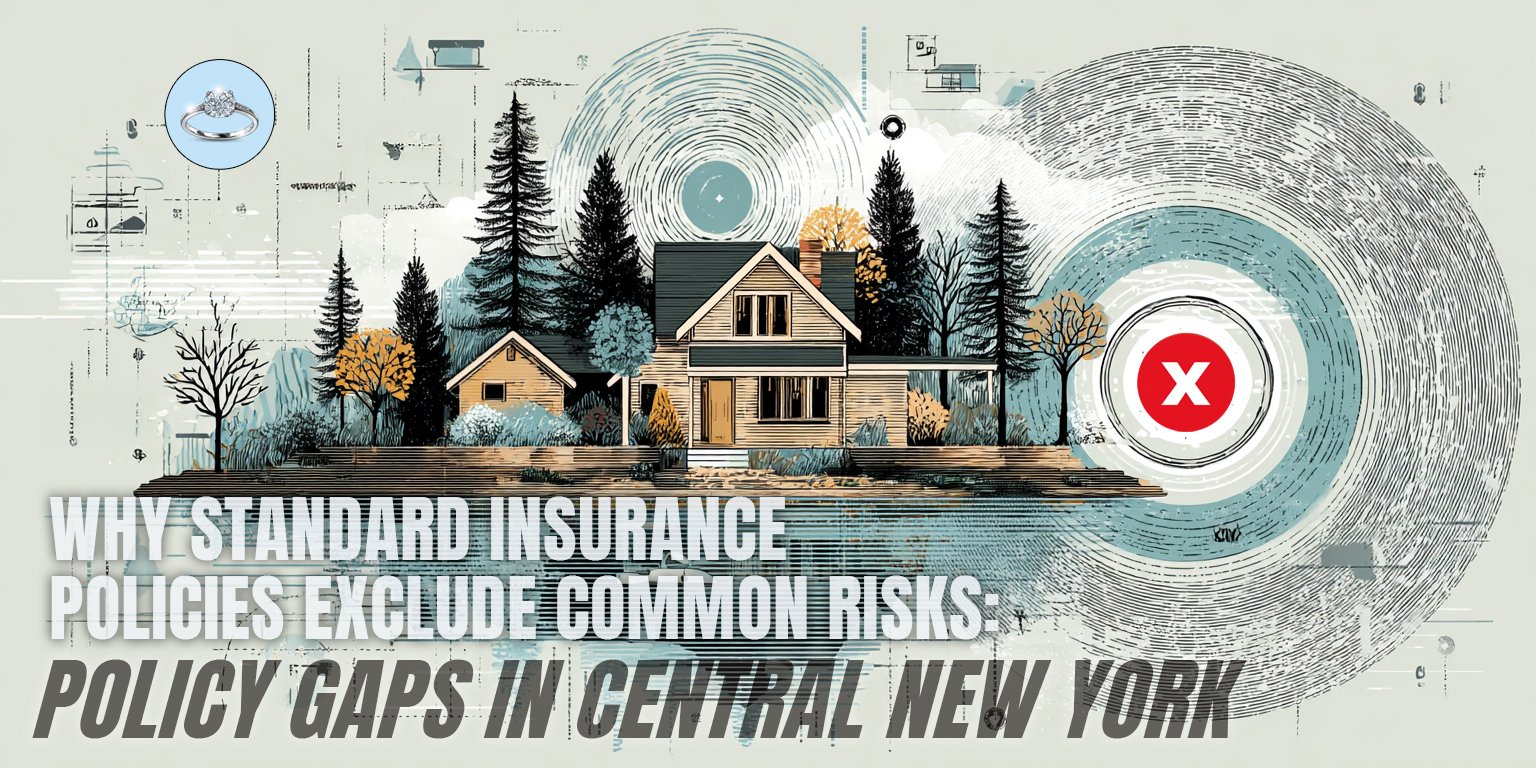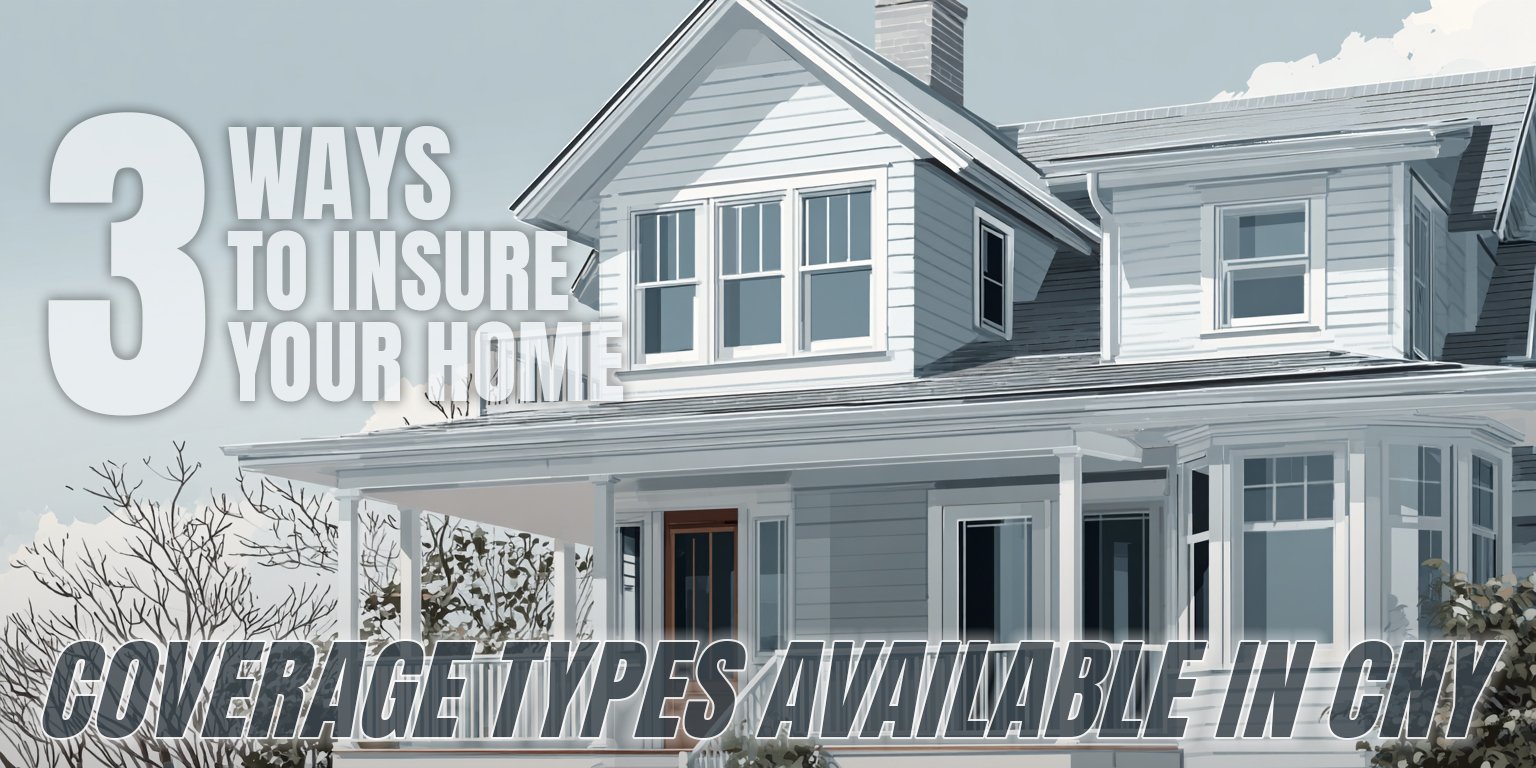3 Critical Insurance Facts for CNY Real Estate Closings: What REALTORS®, Loan Officers, and Lawyers Should Master
August 26th, 2024
4 min read

The call from your client saying they're ready to contract on their dream home in Central New York can stir up a mix of emotions. Excitement about finalizing the deal, perhaps tinged with worry about the remaining hurdles. As you prepare for the closing, homeowners insurance might not be at the forefront of your mind—but it should be.
Many real estate professionals don't realize how crucial the timing and details of homeowners insurance can be to a smooth closing. You might wonder: "When should we get the insurance binder? What if the premium is higher than expected?" These are valid concerns. The wrong approach to insurance could derail your deal at the eleventh hour.
At Horan, we've guided many Central New York real estate professionals through the intricacies of homeowners insurance in the closing process. As an independent insurance agency, we have a unique advantage.
We work with multiple carriers, giving us insights that single-company agents simply can't match. We understand the nuances of different policies and how they apply to your specific transactions.
This article will shed light on three critical homeowners insurance facts every real estate professional should know. We'll explore:
- The significance of policy effective dates,
- The dangers of estimating premiums, and
- The truth about using social security numbers for insurance quotes.
Our goal is to equip you with the knowledge to navigate this aspect of closings confidently, ensuring your deals close smoothly and on time.
 Understanding the Inflexibility of Homeowners Insurance Effective Dates in Central New York
Understanding the Inflexibility of Homeowners Insurance Effective Dates in Central New York
Real estate transactions in Central New York often involve some flexibility with dates. However, when it comes to homeowners insurance, the effective date is set in stone.
The Binding Nature of Insurance Policies
Unlike other aspects of real estate transactions, homeowners insurance policies are uniquely inflexible when it comes to effective dates. Once a policy is bound, it can't be changed—unlike a closing date that works on an “on or about” basis. A binder represents “bound coverage,” and there's no unbinding process. You can only cancel and start over, which can be time-consuming and potentially costly.
For instance, if your client is buying a home in Liverpool and the closing gets pushed up a week, you can't simply adjust the insurance policy's effective date. You'd need to cancel the existing policy and create a new one, which could result in delays or even changes in premium costs.
Strategies for Timing Insurance Binders
To avoid complications, consider this approach:
- Have your buyer get a quote using the estimated closing date.
- Ask the insurance agent to provide a copy of the quote to underwriting for PITI (Principal, Interest, Taxes, and Insurance) payment calculations.
- Wait until other closing hurdles are cleared before obtaining the final binder and paid receipt.
This strategy allows for flexibility while still providing the necessary information for the underwriting process. It's particularly useful in situations where closing dates might shift due to factors like property inspections or title issues, which can happen in any area of Central New York.
Importantly, a policy can be bound, paid, and produced within moments when needed. If an insurance agent tells you otherwise, it might be time to find a new one who can meet the rapid turnaround times often required in real estate transactions.
The Perils of Estimating Homeowners Insurance Premiums in Central New York
It's tempting to estimate insurance premiums based on similar properties, especially in neighborhoods with comparable homes. However, this seemingly logical approach can lead to serious miscalculations that could jeopardize your closing.
The Dual Factors of Property and Person
Insurance premiums are determined by two main factors:
- the property itself and
- the person insuring it.
While you might be familiar with the property aspects, personal factors can significantly impact the premium.
For example, a client buying a home in Fayetteville might have a perfect credit score and no prior claims, resulting in a lower premium. Conversely, a buyer in Manlius with a recent claim history could face higher rates for a similar property.
Hidden Factors That Influence Premiums
Several elements can affect insurance premiums that aren't immediately apparent:
- Recent claims history: For instance, a $25,000 engagement ring lost on a honeymoon three years ago would count as a claim, affecting the premium.
- Frequency of claims: More than two claims in five years can cause premiums to skyrocket and drastically reduce the number of carriers willing to write a policy.
- Multi-policy discounts: Bundling home and auto insurance can lead to discounts as high as 40% on the home policy.
- Driving records: A DUI in the past 5 years could prevent a carrier from offering auto insurance, eliminating the possibility of multi-policy discounts for home insurance.
These factors can significantly alter the premium, making estimates unreliable. It's always best to work with an insurance professional to get accurate quotes for your clients.
Debunking the Myth About Using Social Security Numbers for Insurance Quotes
Many Central New York homebuyers worry that providing their social security number for an insurance quote will impact their credit score. This concern is unfounded and could lead to delays in the closing process.
The Truth About Using Social Security Numbers for Insurance Quotes
When an insurance company uses a social security number for a quote:
- It's considered a "soft pull" and doesn't register as an inquiry on the credit report
- It doesn't affect the credit score in any way
- It's used to establish an insurance score, which helps determine rates
For instance, if your client is looking at a home in DeWitt, they shouldn't hesitate to get multiple insurance quotes. These inquiries won't harm their credit score or jeopardize their mortgage approval.
Empower Your Real Estate Transactions with Insurance Know-How
We've covered three critical facts about homeowners insurance that can make or break your real estate deals in Central New York. By understanding the inflexibility of policy dates, the complexity of premium calculations, and the truth about using social security numbers for insurance quotes, you're better equipped to guide your clients through the closing process smoothly.
Overlooking these insurance details could lead to last-minute hurdles or even derailed deals. On the other hand, addressing them proactively can give you and your clients composure and security as you approach closing day.
At Horan, we aspire to be your trusted resource in navigating these insurance intricacies. Our unique position in the market allows us to offer insights and solutions that can make a real difference in your transactions.
Don't let insurance issues jeopardize your hard work. Let our expertise work for you and your clients.
Click the Get a Quote button below to connect with our team. We'll work together to ensure your clients' homeowners coverage aligns perfectly with their new property and closing timeline.
Find out if Horan is the right independent insurance agency for you.
Daniel is an accomplished content creator. He has been working in publishing for almost two decades. Horan Companies hired Daniel as its content manager in November 2022. The agency entrusted its messaging to him. Since then, Daniel has written insurance articles, service pages, PDF guides, and more. All in an effort to educate CNY readers. He's helping them understand the world of insurance so they can make informed decisions.
Topics:



























